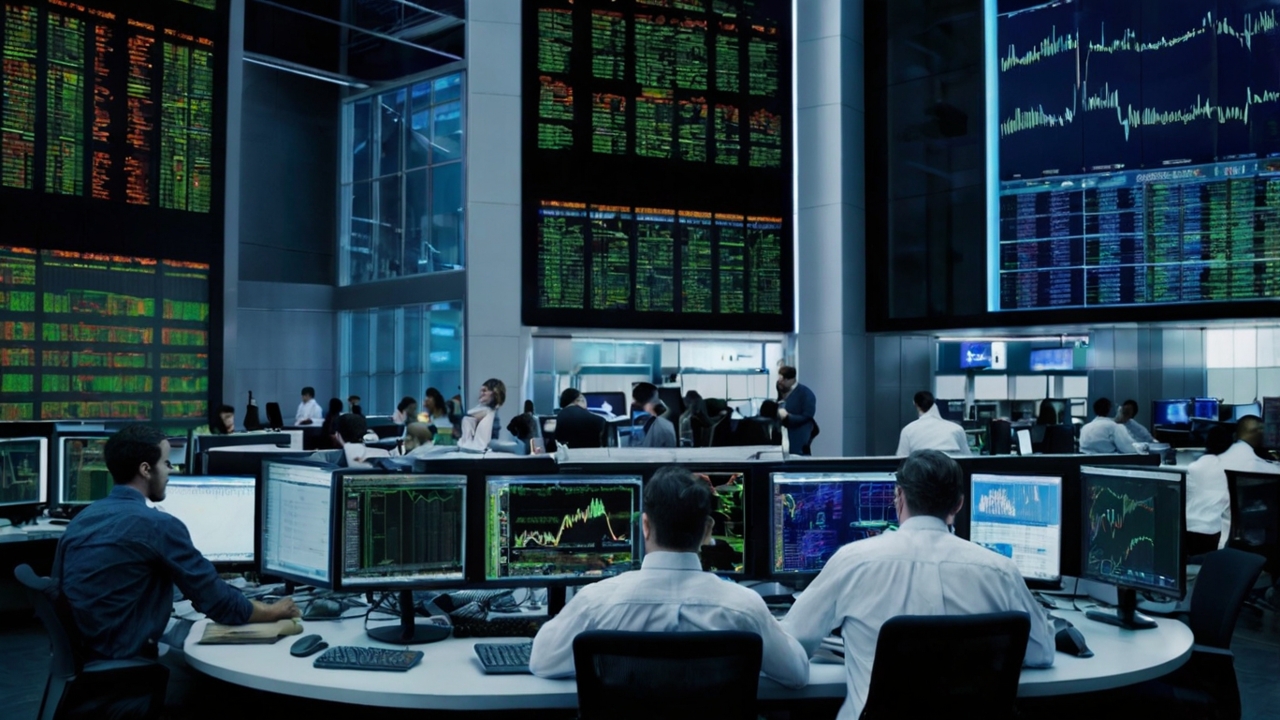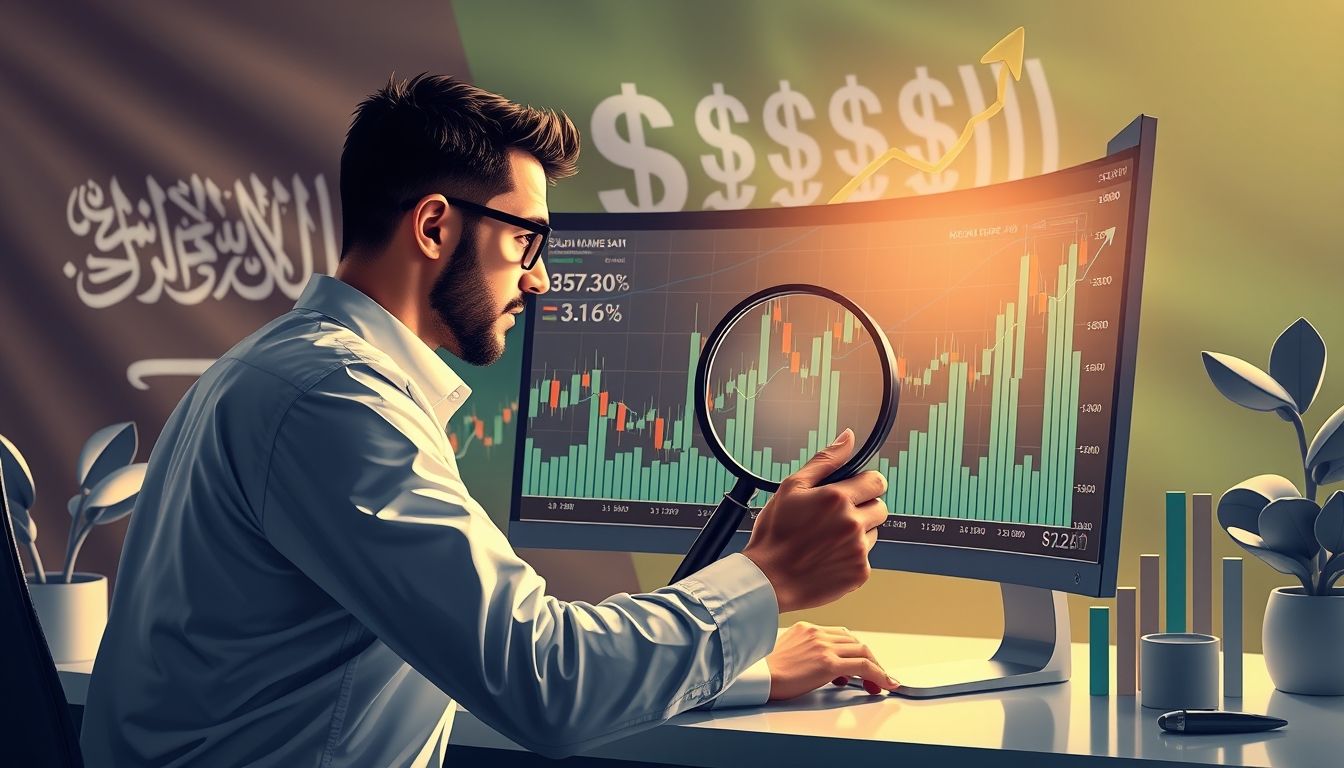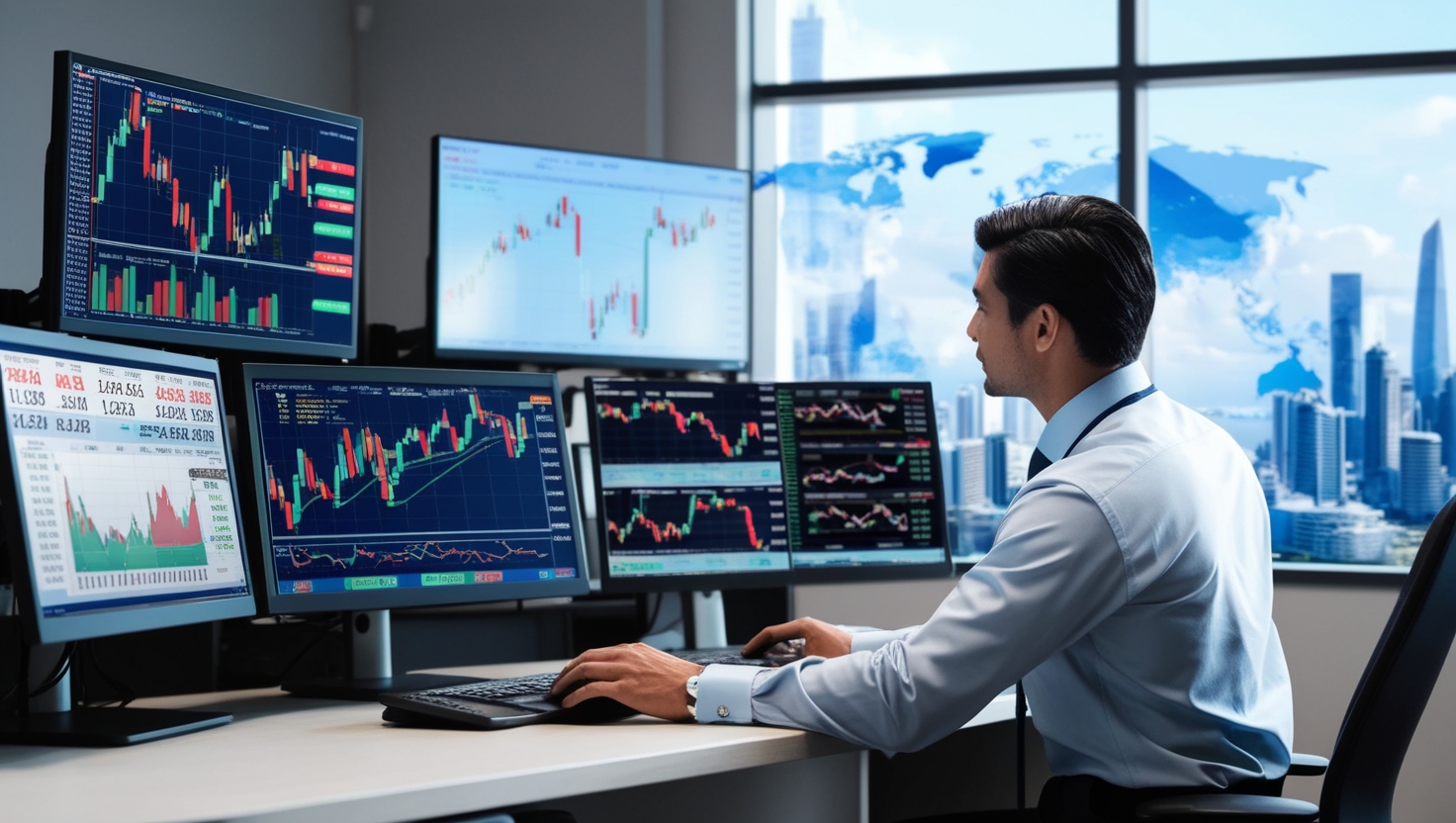Introduction to Social Trading: A Revolution in the Investment World?
The investment world is undergoing rapid transformations, and among the most prominent of these is the emergence of social trading, which represents a new model combining investment and social interaction. Investing is no longer limited to large financial institutions or professional investors with extensive experience. Rather, it has become accessible to a broader segment of individuals thanks to technology and digital platforms that have facilitated access to global financial markets.
Social trading, simply put, is a platform that allows investors, especially beginners, to monitor the trades of other investors, particularly professional traders, and automatically copy their strategies. The basic idea is to benefit from the expertise of successful traders and reduce the risks associated with making uninformed investment decisions. But is social trading the ideal solution for new investors? And is it really a shortcut to profits? This is what we will explore in this article.
What is Social Trading and How Does it Work?
Social trading is based on the principle of transparency and participation. Platforms allow traders to share information about their trades, such as the assets being traded, the amount of investment, and the level of risk. They also provide tools to analyze the performance of other traders, which helps investors choose the traders they want to follow or copy their trades.
The mechanism is simple:
- Register on a social trading platform: There are many platforms available, each with its own features and characteristics.
- Search for professional traders: Platforms allow you to search for traders based on various criteria, such as profit ratio, risk level, and assets being traded.
- Analyze the performance of traders: Platforms provide detailed information about the performance of traders, such as their trade history, profit and loss rate, and risk level.
- Copy the trades of traders: Once you have chosen the appropriate traders, the investor can automatically copy their trades. In other words, when the selected trader opens a trade, a similar trade is opened in the investor's account, in the same proportion of capital.
Benefits of Social Trading: Is it Worth the Experience?
Social trading offers many benefits that make it attractive to investors, especially beginners:
- Learning from experts: Social trading allows investors to learn from professional traders and understand their strategies. By monitoring their trades and analyzing their performance, investors can gain valuable experience in the financial markets.
- Saving time and effort: Instead of spending hours analyzing markets and making investment decisions, investors can copy the trades of professional traders and save time and effort.
- Diversifying the investment portfolio: Investors can copy the trades of many different traders, which helps diversify the investment portfolio and reduce risks.
- Access to global markets: Social trading platforms provide access to global financial markets, such as stock, currency, and commodity markets.
- Potential for profit: If the right traders are chosen, investors can make good profits by copying their trades.
Risks of Social Trading: Don't Overlook the Dark Side
Despite the many benefits offered by social trading, it is not without risks. Investors should be aware of these risks before starting to use it:
- Past performance does not guarantee future success: Just because a trader has performed well in the past does not mean they will continue to perform well in the future. Financial markets are volatile, and conditions can change rapidly.
- Risks associated with traders: Traders may make mistakes, and they may make poor investment decisions. If an investor copies the trades of a trader who makes mistakes, they will incur losses.
- Risks associated with the platform: Social trading platforms may be subject to fraud or hacking. Investors should choose reliable and licensed platforms.
- Fees and commissions: Social trading platforms charge fees and commissions for the services they provide. Investors should understand these fees before starting to use the platform.
- Overconfidence: Social trading can lead to overconfidence, which can lead investors to make reckless investment decisions.
How to Choose the Right Trader to Copy?
Choosing the right trader to copy is key to success in social trading. Here are some tips to consider:
- Analyze past performance: Look for traders who have a proven track record of good performance over the long term. Don't rely solely on recent performance.
- Understand the trading strategy: Try to understand the trading strategy used by the trader. Is it a conservative or aggressive strategy? Does it fit your investment goals and risk tolerance?
- Monitor the level of risk: Choose traders who have a reasonable level of risk. Don't copy the trades of traders who take very high risks.
- Read comments and ratings: Read the comments and ratings left by other users for traders. This can give you an idea of the trader's reputation and the quality of their services.
- Diversification: Don't rely on just one trader. Copying the trades of many different traders helps diversify the investment portfolio and reduce risks.
Social Trading in the Arab World: An Overview
Social trading is experiencing increasing growth in the Arab world, as more and more investors are looking for new and easy ways to enter the financial markets. There are many platforms that offer social trading services in the region, targeting especially novice investors who do not have much trading experience.
Some of the challenges facing social trading in the Arab world:
- Lack of awareness: Many people in the Arab world are still unaware of the concept of social trading and its risks and benefits.
- Language barriers: Most social trading platforms are available in English, which may be a barrier for some Arab investors.
- Regulatory restrictions: Laws and regulations related to social trading are still unclear in some Arab countries.
Case Studies: Success and Failure Stories in Social Trading
Success story: "Ahmed, an Arab young man, had no trading experience. After researching and reading, he decided to try social trading. He carefully selected three professional traders with a proven track record of good performance and a reasonable level of risk. After a few months, Ahmed made good profits by copying their trades."
Failure story: "Fatima, an Arab woman, heard about social trading and decided to try it. Unfortunately, she chose only one trader who was taking very high risks. Within a few weeks, Fatima lost a significant portion of her capital."
These stories illustrate the importance of research and analysis before starting social trading. Success is not guaranteed, and failure is possible if the necessary precautions are not taken.
Tips for Beginners in Social Trading
- Start with a small amount: Don't invest more than you can afford to lose. Start with a small amount and learn gradually.
- Don't put all your eggs in one basket: Diversify your investment portfolio by copying the trades of many different traders.
- Monitor your trades constantly: Don't let your trades run automatically without monitoring. Be aware of what's happening in your account.
- Learn as much as possible: Invest in learning more about the financial markets and trading strategies.
- Be patient: Don't expect to make big profits in a short time. Social trading takes time and effort.
The Future of Social Trading: Where is it Heading?
The future of social trading looks promising, as it is expected to continue to grow and evolve. Technology is expected to play a greater role in developing platforms and improving the user experience. Transparency and reliability are also expected to increase in platforms, which will attract more investors.
Some potential future trends:
- Artificial intelligence: Artificial intelligence may be used to analyze data and identify the best-performing professional traders.
- Machine learning: Machine learning may be used to improve trading strategies and increase profits.
- Virtual reality: Virtual reality may be used to create more immersive and interactive trading experiences.
Conclusion: Social Trading - Opportunity or Risk?
Social trading can be a good opportunity for novice investors to enter the financial markets and learn from the experts. But it can also be dangerous if not used with caution. Investors should be aware of the risks associated with social trading and take the necessary precautions before starting to use it. Success in social trading requires research, analysis, patience, and commitment.




